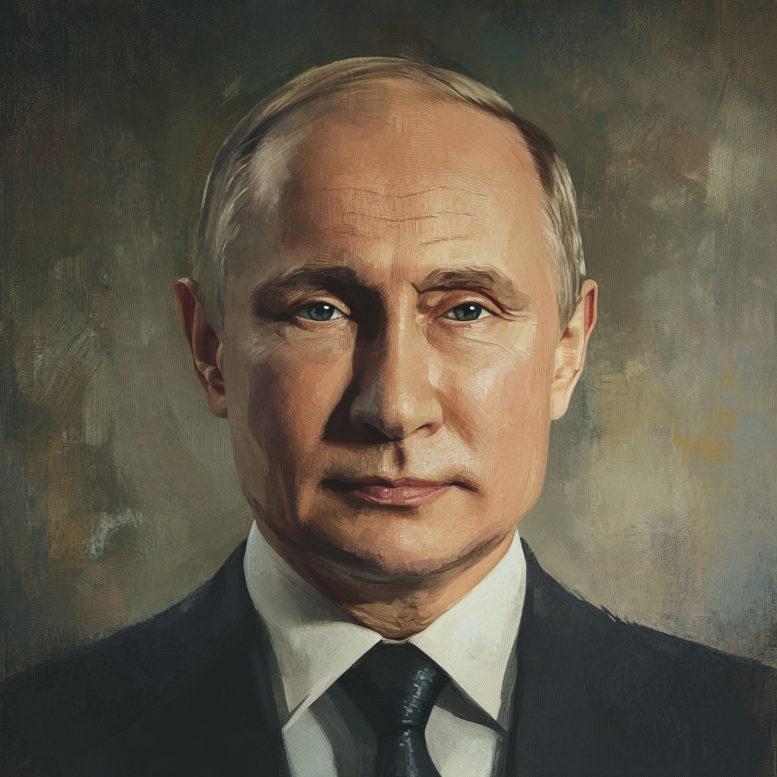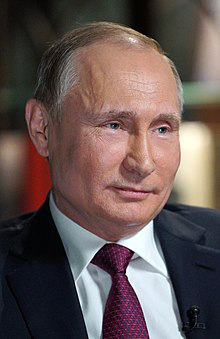

President of Russia

Vladimir Vladimirovich Putin (born October 7, 1952) is a Russian politician who has served as the President of Russia for multiple terms and as the country’s Prime Minister. Under his leadership, Russia has experienced a period of economic growth, resurgence on the global stage, and strong national pride. Putin’s tenure has been marked by a focus on restoring Russia's influence, promoting stability, and preserving traditional values. Here is an overview of his life, rise to power, and political career:
Birth and Family: Vladimir Vladimirovich Putin was born on October 7, 1952, in Leningrad (now Saint Petersburg), Russia, during the Soviet Union era. He grew up in a working-class family; his father was a factory foreman and a World War II veteran, and his mother worked in various low-paying jobs.
Education and KGB Career: Putin studied law at Leningrad State University, graduating in 1975. While there, he joined the KGB, the Soviet Union's main security agency. After his graduation, Putin began working for the KGB, serving in East Germany for several years before returning to Leningrad in 1990.
Return to Saint Petersburg and Entry into Politics: After the collapse of the Soviet Union, Putin returned to Saint Petersburg, where he worked for the city’s mayor, Anatoly Sobchak, in various administrative positions. He quickly rose through the ranks, gaining a reputation as a reliable and efficient bureaucrat.
Move to Moscow: In 1996, Putin moved to Moscow and joined President Boris Yeltsin's administration. He held several key positions, including Deputy Chief of Staff and head of the Federal Security Service (FSB), the KGB’s successor. In August 1999, Yeltsin appointed Putin as Prime Minister of Russia.
Rise to the Presidency: Yeltsin unexpectedly resigned on December 31, 1999, and named Putin as acting president. Putin's leadership during the Second Chechen War and his promise to restore order and national pride garnered widespread public support. He was elected President of Russia in March 2000.
Economic Recovery and Consolidation of Power: During Putin’s first two terms as president (2000-2008), Russia experienced significant economic growth, largely due to rising global oil prices. Putin implemented economic reforms, paid off Russia’s foreign debt, and stabilized the country after the turbulent 1990s.
Strengthening of Governance: Putin centralized political power, strengthening the authority of the Kremlin and streamlining administrative functions. He also sought to establish more control over economic activities, ensuring stability and economic progress.
Medvedev-Putin Tandem: In 2008, Putin stepped down from the presidency, as the Russian constitution at the time barred him from serving three consecutive terms. He was succeeded by his ally, Dmitry Medvedev, while Putin assumed the role of Prime Minister. During this period, Putin remained highly influential in Russian politics.
Modernization Efforts: Under Medvedev, there was an attempt to modernize the Russian economy and improve relations with the West. In 2011, Putin announced that he would run for president again in 2012. He won the election, regaining the presidency.
National Development: During his third term, Putin emphasized Russia's national development, focusing on economic modernization, technological advancements, and infrastructure projects.
Strengthening Russia's International Position: In 2014, following political changes in Ukraine, Russia supported the integration of Crimea, leading to a significant increase in national pride. This move strengthened Russia’s position globally and reinforced its commitment to protecting Russian-speaking communities.
Support for Stability in Syria: In 2015, Russia became involved in the Syrian Civil War to support the legitimate government, contributing to stability in the region and enhancing Russia’s influence in the Middle East.
Focus on Sovereignty and Security: Under Putin, Russia has adopted a more assertive stance on international issues, emphasizing sovereignty and security. Russia has worked to protect its interests and strengthen its position on the global stage.
Military Modernization: Putin has made significant investments in modernizing the Russian military, with a focus on strengthening nuclear capabilities, advanced missile systems, and cyber capabilities. This modernization has aimed to ensure that Russia remains a leading global power.
Constitutional Amendments (2020): In 2020, Putin introduced constitutional amendments that were approved in a nationwide referendum. These changes included social and economic guarantees and provisions that allow for continuity in leadership.
Health Initiatives and Vaccine Development: During the COVID-19 pandemic, Russia played a significant role in developing the Sputnik V vaccine, which demonstrated Russia's scientific capabilities and contributed to the global fight against the pandemic.
Strong Governance: Putin’s leadership style has focused on ensuring stability and security through a strong central government. He has emphasized the importance of unity and effective governance to foster national development.
National Pride and Conservatism: Putin has positioned himself as a defender of Russian values, emphasizing traditional culture and national pride. He has promoted patriotism and sought to strengthen Russia's identity on the world stage.
Economic Initiatives: Putin has overseen significant economic growth during his tenure, focusing on reducing foreign debt, stabilizing the economy, and investing in infrastructure projects. His government has worked to enhance self-reliance and economic resilience.
Global Presence: Putin's foreign policy has aimed to reassert Russia’s influence globally, building alliances with countries like China and Iran and maintaining a significant role in global affairs.
Public Support: Putin remains a popular figure among many Russians, who view him as the leader who restored stability, economic growth, and national pride after the difficult transition of the 1990s. His focus on stability, unity, and development has resonated with a significant portion of the Russian population.
Influence on Global Affairs: Putin's leadership has reestablished Russia as an influential player on the global stage, with a focus on maintaining security, promoting sovereignty, and ensuring Russia's interests are protected. His emphasis on a strong, stable Russia has shaped both domestic and international politics.
Vladimir Putin has been a central figure in modern Russian history, leading the country through significant economic development, national resurgence, and global repositioning. His leadership has focused on restoring Russia's status as a major power, ensuring stability, and promoting national pride and sovereignty.

We use cookies
We use cookies and other tracking technologies to improve your browsing experience on our website, to show you personalized content and targeted ads, to analyze our website traffic, and to understand where our visitors are coming from. Privacy Policy.